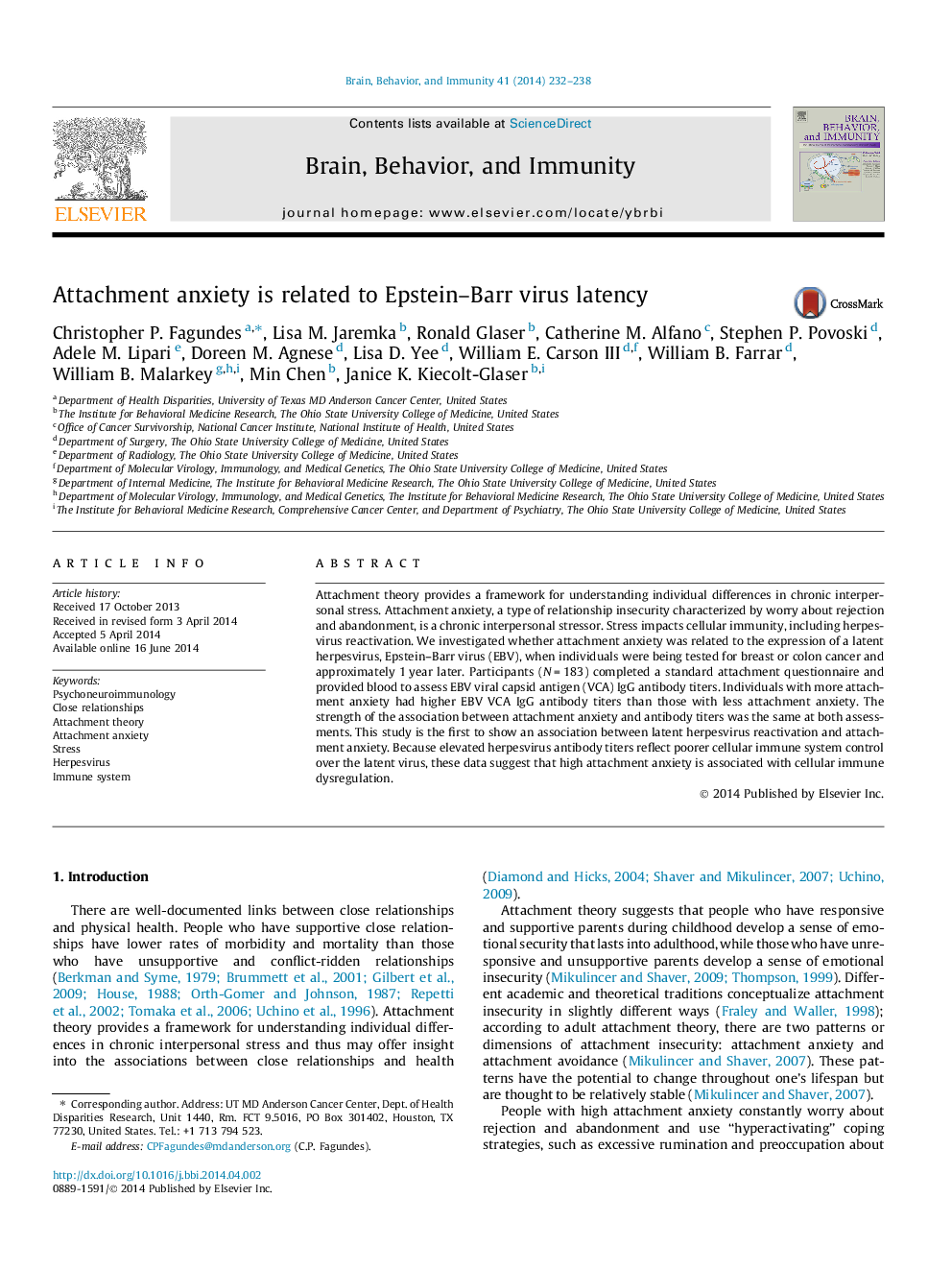| Article ID | Journal | Published Year | Pages | File Type |
|---|---|---|---|---|
| 7281592 | Brain, Behavior, and Immunity | 2014 | 7 Pages |
Abstract
Attachment theory provides a framework for understanding individual differences in chronic interpersonal stress. Attachment anxiety, a type of relationship insecurity characterized by worry about rejection and abandonment, is a chronic interpersonal stressor. Stress impacts cellular immunity, including herpesvirus reactivation. We investigated whether attachment anxiety was related to the expression of a latent herpesvirus, Epstein-Barr virus (EBV), when individuals were being tested for breast or colon cancer and approximately 1Â year later. Participants (NÂ =Â 183) completed a standard attachment questionnaire and provided blood to assess EBV viral capsid antigen (VCA) IgG antibody titers. Individuals with more attachment anxiety had higher EBV VCA IgG antibody titers than those with less attachment anxiety. The strength of the association between attachment anxiety and antibody titers was the same at both assessments. This study is the first to show an association between latent herpesvirus reactivation and attachment anxiety. Because elevated herpesvirus antibody titers reflect poorer cellular immune system control over the latent virus, these data suggest that high attachment anxiety is associated with cellular immune dysregulation.
Keywords
Related Topics
Life Sciences
Immunology and Microbiology
Immunology
Authors
Christopher P. Fagundes, Lisa M. Jaremka, Ronald Glaser, Catherine M. Alfano, Stephen P. Povoski, Adele M. Lipari, Doreen M. Agnese, Lisa D. Yee, William E. III, William B. Farrar, William B. Malarkey, Min Chen, Janice K. Kiecolt-Glaser,
